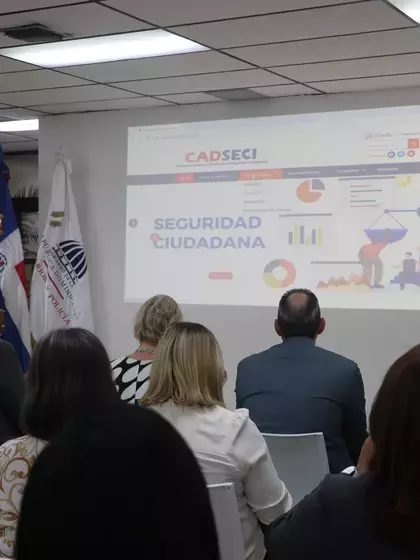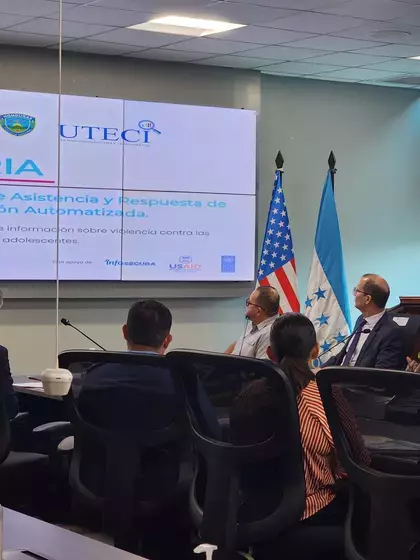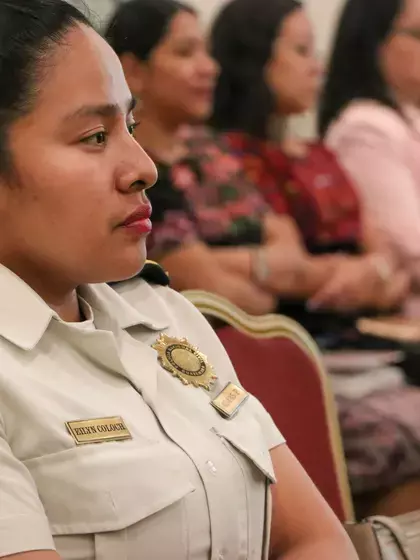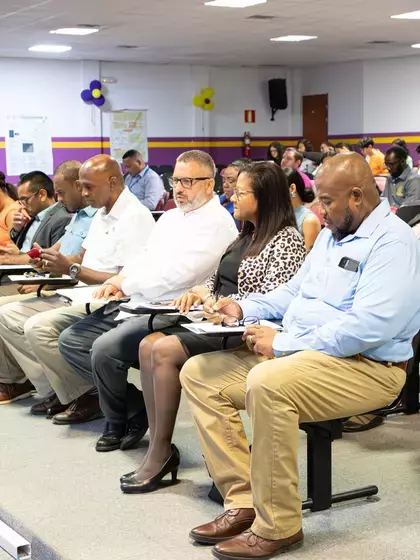Gender-based and Domestic Violence Forum Raises Awareness of the problem in Belize

The InfoSegura Regional Project, implemented by the United Nations Development Program (UNDP) in alliance with the United States Agency for International Development (USAID), joined the Ministry of Home Affairs and New Growth Industries and the U.S. Embassy in a space of exchange to prevent gender-based and domestic violence in Belize and to sharing services and resources that are available to women and girls, youth and people exposed to violence in the country.
According to InfoSegura data, in Central America and the Dominican Republic, 9 out of 10 victims of sexual crimes are women and girls who face a greater risk of sexual violence and other types of violence in private as well as public spaces, such as on transportation and in the workplace.
“Domestic abuse encompasses all behaviors intended to exert authority and control over the victim, not just physical ones. The perpetrator is mainly the spouse, life partner or a close relative. The major effects of domestic abuse are shown on people’s overall health and wellness. Therefore, forums such as these that spread awareness and provide information on support resources available is important for us to jointly fight domestic violence and provide victims with as much information as possible.”
Hon. Kareem Musa, Minister of Home Affairs and New Growth Industries.
The event was also attended by staff from the United Nations Population Fund, the Ministry of Human Development, Families and Indigenous Affairs, the Ministry of Health and Welfare, the Magistracy, the Director of Public Prosecutions, the Forensic Unit, the Belize Police Department and support groups of victims of domestic violence who are addressing the alarming increase in violence against women and girls with a shared and unified approach.
"Initiatives like the InfoSegura Project use data and statistics to reflect real-life situations and to help governments and countries like Belize make evidence-based decisions and policies. This involves collaboration and whole-of-society approach. This forum brings together different sectors and institutions to expand coordination and advocacy ensuring gender perspective is incorporated into citizen security policies and actions.”
Ian King, UNDP’s Deputy Resident Representative in Belize.
"The United States, through USAID's Infosegura Project, has supported the countries of Central America and the Dominican Republic over the past 10 years through the use of evidence for public policy decision making, as well as in the availability of information on resources available to victims of gender-based and domestic violence."
Sydney Skov, Political Officer at the U.S. Embassy in Belize.
The InfoSegura Project supports the Belize Crime Observatory to enhance the knowledge, capacities and lessons of institutions that specialize in citizen security and justice and to implement the 2030 Sustainable Development Agenda specifically through Sustainable Development Goal (SDG) 5 of achieving gender equality, SDG 16 for peace, justice and strong institutions, and SDG 17 of partnerships for goals.





